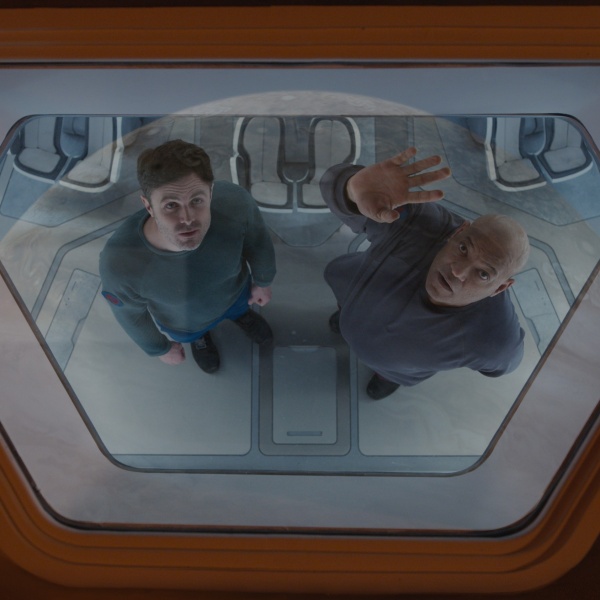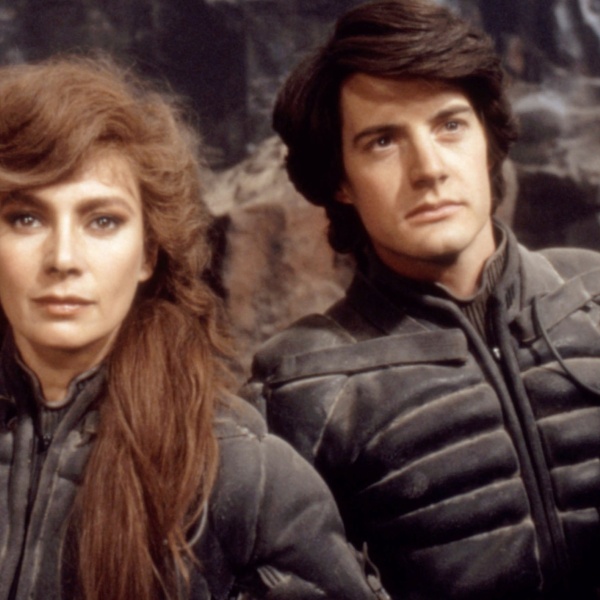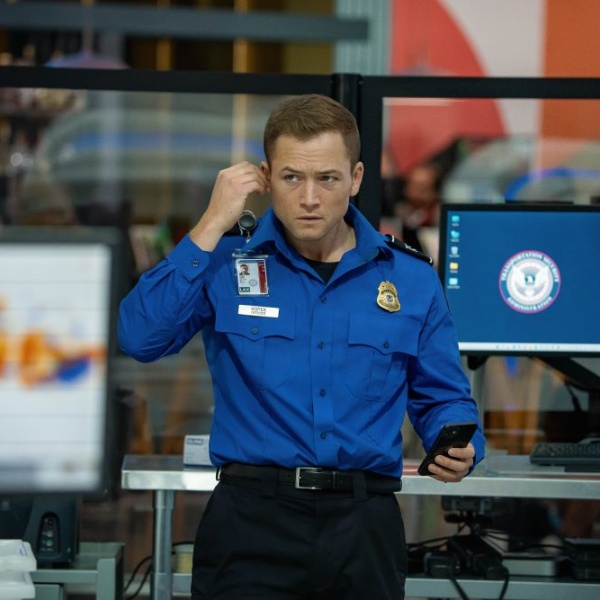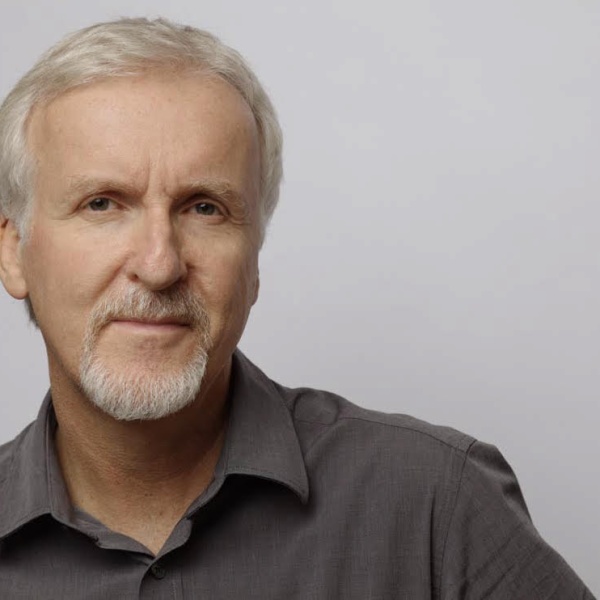Ordinarily, Jessica Chastain would be launching her Phase 2 Emmy campaign for her first Emmy nomination for Best Actress in a Limited Series in “George & Tammy” (Showtime), in which she stars as country singer Tammy Wynette. I spoke to her on the phone just before the SAG-AFTRA negotiating committee released a formal announcement of a strike — with no Emmy campaigns allowed.
She had also been planning to attend some fall festivals to promote “Memory,” the new Michel Franco movie with Peter Sarsgaard. “I am definitely pro-union,” she told IndieWire. “There’s huge innovations in our industry, content has been incredible, streaming and amazing technology have made huge steps, and quickly. But difficult things like contracts haven’t kept up with the innovations that have been made, resulting in huge inequality, people not able to earn a fair wage and support families. The industry has been so separated in terms of who is able to make a living and who isn’t. This can’t continue anymore. My heart breaks.”
Chastain is prepared to “not go to festivals,” she said, “not go to the Emmys [which will likely be postponed]. It’s sad. I have been attached to ‘George & Tammy’ for over 10 years. We all want, with Georgette Jones, to celebrate Tammy Wynette. I’m not going to be able to talk about it anymore, or ask people to watch the show. That sacrifice is nothing compared to the sacrifices of others, who have financial difficulties during the strike.”
Chastain highlights what the industry faces going into the festival and award season, not to mention the impact of production shutting down. With her “Mission: Impossible Dead Reckoning — Part One” promo chores completed and “Dune Part Two” in the can, Rebecca Ferguson was heading to Sweden on Wednesday to be with her son and await the news of whether she returns to shoot “Silo” Season 2. Now we know.
As the striking WGA writers are pencils down, so some 160,000 SAG-AFTRA members can’t shoot or promote anything, past, present, or future, with a SAG-AFTRA contract. In theory, they could walk a red carpet in Venice without giving an interview — a likely scenario for multi-hyphenate Bradley Cooper, who can accept kudos in Venice for directing his movie “Maestro” about Leonard Bernstein, but can he parse a press conference or interviews without discussing his central performance? Netflix will have to figure this out.

Most actors, like Chastain, will sit out the festivals this year, including Telluride, which tends to promote a summer camp atmosphere without red carpets or press junkets, although a select number of awards press catch the Q&As and do interviews on the side. Not this year. Scratch rumored tribute star Annette Bening, star of Netflix release “Nyad.” Directors like Jimmy Chin and E. Chai Vasarhelyi will be carrying the ball at Telluride, as well as the less glitzy-than-usual Venice and Toronto, which do rely on red carpet glamour.
Actor-less festivals could prove a problem for attracting local audiences to high-profile titles, but it’s a big hurdle for the studios and distributors looking to use the festivals as fall launch pads at the start of Oscar season. The risk is that distributors will pull their titles if actors can’t attend. On the other hand, they’re the most expensive component of a premiere. Money could be saved. TIFF sent a statement:
“The impact of this strike on the industry and events like ours cannot be denied. We urge our partners and colleagues to resume an open dialogue. We will continue planning for this year’s Festival with the hope of a swift resolution in the coming weeks.”
The timing is fascinating. Clearly, the studios got some press in front of “Barbie,” “Mission: Impossible Dead Reckoning — Part One” and “Oppenheimer” before it was too late. Or, according to SAG-AFTRA union leader Fran Drescher, who blamed the AMPTP for planting a damaging photo of her with Kim Kardashian while she was in Italy at a working event, not a party, she said, the studios needed a twelve-day extension that they “wasted” in order to have more time to promote their movies.
But the strike will immediately cause Searchlight Pictures to miss an opportunity to have the cast of “Theater Camp,” which opens this weekend, to perform the final musical number live on “The Today Show” with Ben Platt, Molly Gordon, and Noah Galvin as guests. Such promos are valuable in a world with no nightly talk shows. Because the trio are all starring in and co-wrote the movie, even though they co-produced and Gordon co-directed, they still can’t promote it.
Searchlight is also facing a festival quandary with Yorgos Lanthimos’ surreal romance “Poor Things,” starring Emma Stone as a woman with her own child’s brain implanted in her head. The offbeat film is slated to open September 8, so a Venice launch and London and New York promo tour were designed to propel the movie into release. If the strike looks like it will last for months, the distributor may need to rethink that early release date.

While Wes Anderson’s “Asteroid City” (Focus) had three weeks of solid business before going to PVOD and A24’s “Past Lives” is holding well, the specialty business is still in a fragile state as older arthouse audiences are not returning in big numbers. This area of the industry could suffer collateral damage this fall if the actors strike is not resolved shortly.
“Completed projects need publicity support,” wrote one marketing executive in an email. “This could literally kill specialty independent cinema as a theatrical experience forever.”
As always, timing is everything. Assuming the actors strike is settled by September, the later festivals could pick up any lost PR slack, including New York, London, Middleburg, the Hamptons, Savannah, and other regional festivals in the fall corridor.
While some optimistic industry folks see a quick resolution to the SAG strike because so much is at stake in the fall awards season, SAG-AFTRA’s Thursday press conference revealed that larger issues facing the industry are likely to dominate future negotiations, the ones that will cost the studios real money. Clearly there is a long way to go on the issues of a new model for residual payments and AI.
The studios right now are experiencing their own pain, with 7,000 layoffs at Disney, for one. They may seem monolithic and flush to the striking writers trying to make their rent, or the IA members thrown out of work by the WGA picket lines shutting down productions around the country, but the bottom line always talks, and those considerations will inevitably determine how the sides that are currently so far apart eventually come together.







